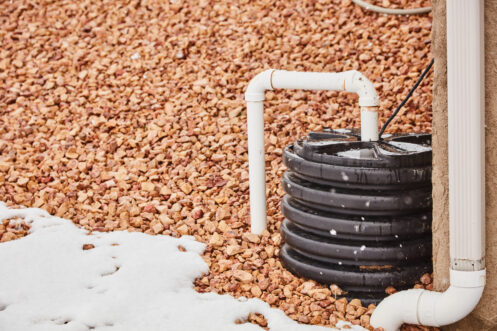Ask a Portland Plumber: How Do Sump Pumps Freeze?
Imagine going through the headache of installing a quality sump pump to protect your basement from flooding and water damage only to have cold weather spoil your plans!
How could this happen? The culprit is often the sump pump’s extension hose. Sump pump extension hoses are equipped with an extension hose that extracts water from the sump pit and funnels it away from the house to be drained at a safe, out-of-the-way location. In the warmer months, this extension hose is very practical and handy. It can provide for more efficient use of water to be used for watering plants and diverting moisture to the thirstiest areas of your yard. However, in the winter months, this practical addition to your sump pump can quickly turn against you.
When your sump pump tries to use an extension hose that has become clogged with ice, the water cannot be properly routed away from the house and instead will travel back up the hose and reenter your basement. This can cause your sump pit to overflow and then you’ve got real problems!
Frozen extension hoses can result in a damaged sump pump and a flooded or water-damaged home. Avoid such costly consequences by detaching your extension hose whenever the weather outside dips below freezing. And even if the hose does freeze, you can still avoid damage to your basement by simply unplugging the sump pump itself so it will not attempt to work and remove water from the sump pit.
Always make sure that the extension hose is correctly attached to the sump pump with a firmly fastened pipe clamp. This is crucial to preventing most problems associated with a frozen sump pump. Rule of thumb: always monitor the weather and try to determine how it will affect your sump pump. Always disconnect your sump pump’s extension hose if you know freezing weather is on the way.
Sump pump problems? Winter weather woes? Call 3 Mountains Plumbing today and learn how we can help!

